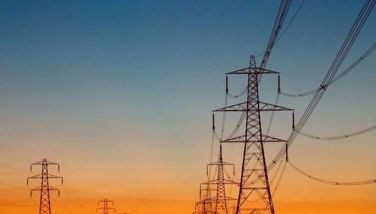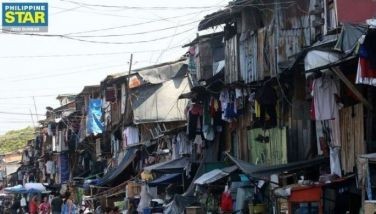China threatens global economy, health – US

MANILA, Philippines — China threatens the global economy and health by unsustainably exploiting natural resources and exporting its willful disregard for the environment through its One Belt One Road initiative, the US State Department said.
In its “China’s Environmental Abuses” Fact Sheet issued recently, the US said China is the world’s largest emitter of greenhouse gases, the largest source of marine debris, the worst perpetrators of illegal, unreported and unregulated (IUU) fishing, and the world’s largest consumer of trafficked wildlife and timber products.
The Chinese people, it said, have suffered the worst environmental impacts of Beijing’s actions.
Secretary of State Michael Pompeo said: “Too much of the Chinese Communist Party’s economy is built on willful disregard for air, land, and water quality. The Chinese people – and the world – deserve better.”
China’s signature One Belt One Road Initiative (OBOR), commonly known as the Belt and Road Initiative (BRI), aspires to create a network of enhanced overland and maritime trade routes to better link China with the world.
“However, implementation of BRI lacks clear environmental guidelines, safety standards, and worker protections,” the fact sheet stated.
“Many BRI-funded projects do not meet international standards, leaving countries to deal with the harmful consequences long after a project is completed. Environmental safeguards depend on the laws of host countries, and Beijing is leading nations away from developing their economies sustainably,” it stated.
In recent years, Chinese-backed projects on several continents have displaced local populations, negatively affected water quality, polluted adjacent land, and spoiled fragile ecosystems. Many planned Chinese infrastructure projects worldwide would do similar harm.
The World Wildlife Fund (WWF) has found BRI corridors overlap with over 1,700 critical biodiversity sites and the ranges of 265 threatened species that could be adversely affected by BRI projects.
A study published in Nature Sustainability suggested BRI projects may lead to “permanent environmental degradation” due to environmental harm through pollution, habitat loss and wildlife mortality, among other factor.
Kaliwa Dam defended
Meanwhile, the Chinese embassy in Manila defended the China-funded Kaliwa Dam project, saying the project is one of the great achievements in helping the Philippines.
It cited more livelihood projects out of mutually beneficial infrastructure cooperation projects with the Philippines within the framework of the Belt and Road Initiative and the Build, Build, Build plan, “aiming to instill a greater sense of fulfillment and satisfaction among our peoples.”
But the Tribal Center for Development Foundation belied reports that their community approved construction of the Kaliwa Dam, a project that will affect indigenous peoples’ communities in Rizal and Quezon.
The embassy said the terms and conditions of the agreement are in accordance with both international practice and Philippine laws.
Chinese Foreign Ministry spokesperson Hua Chunying said the synergy between the BRI and the Build, Build, Build initiative has yielded “positive results and is delivering greater benefits” to the Philippines and China.
US Assistant Secretary of State for East Asian and Pacific Affairs David Stilwell told the US Senate committee on foreign relations last Sept. 17 that China’s initiatives like “One Belt One Road” seek to fuse Beijing’s economic and strategic goals to the detriment of host country sovereignty, security, and sustainable economic growth.
- Latest
- Trending


























